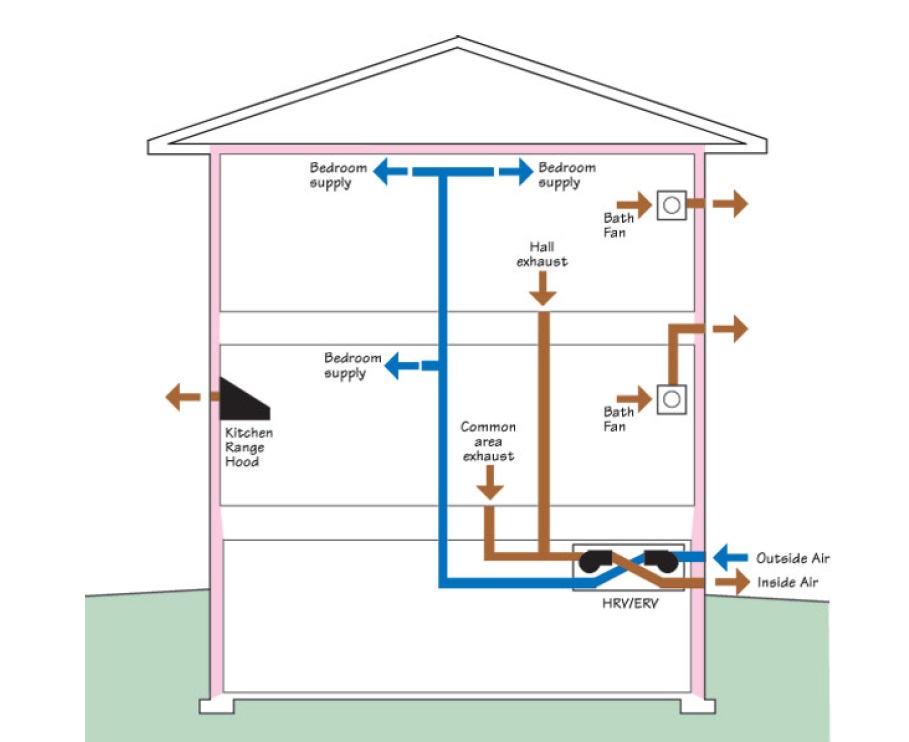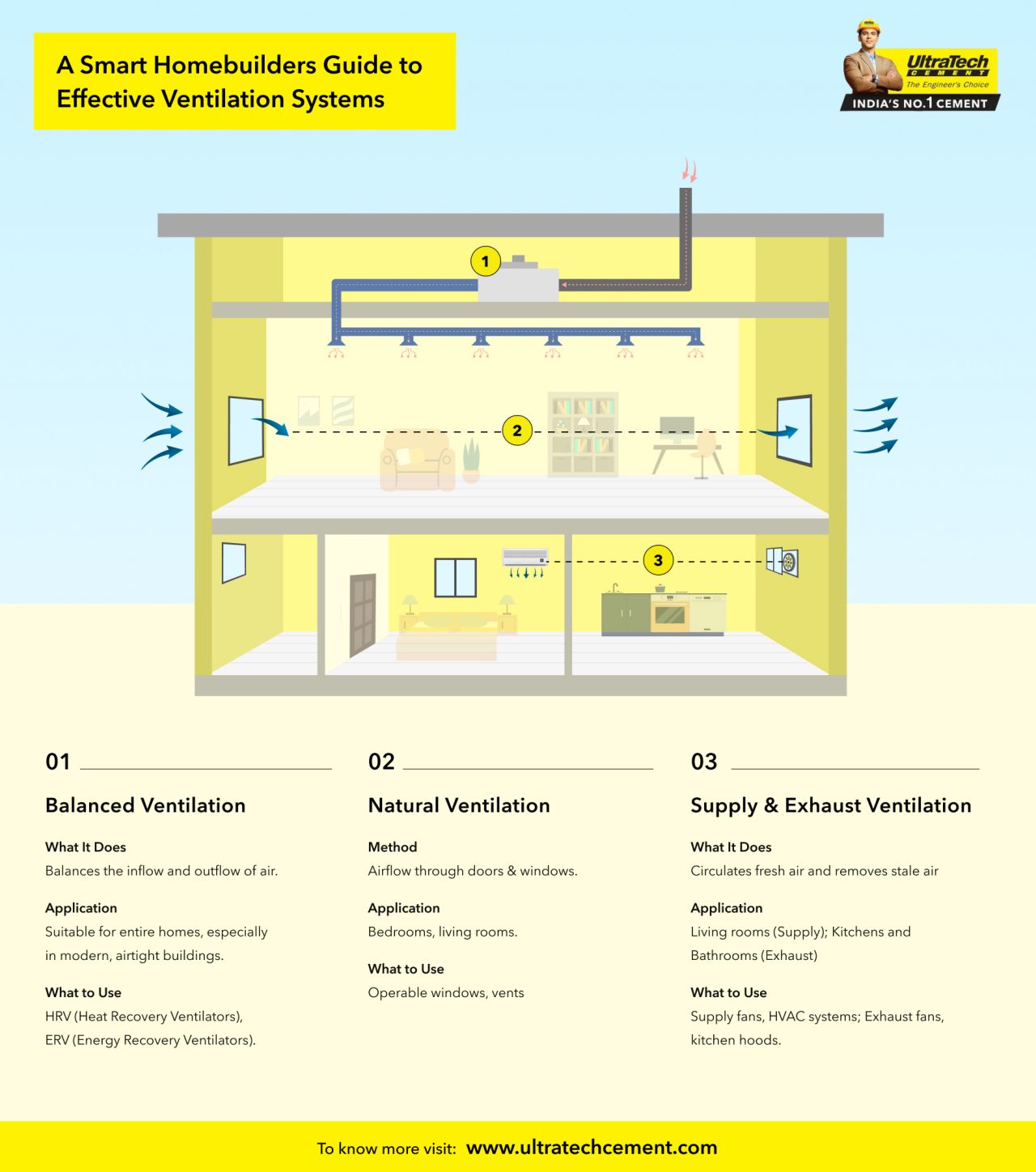Home Ventilation Melbourne Explained: Natural vs Mechanical Options
Wiki Article
The Role of Home Air Flow in Avoiding Mold And Mildew and Indoor Allergens
Home ventilation is a critical element in maintaining a healthy interior atmosphere. It regulates humidity degrees, which can avoid the development of mold and the build-up of irritants. Many house owners overlook the significance of correct ventilation, usually resulting in undetected issues. Comprehending how ventilation systems feature and their influence on air high quality might be the secret to a healthier living area. What actions can be required to enhance these systems successfully?Recognizing Home Ventilation Solutions
While several property owners might forget the importance of ventilation, understanding home ventilation systems is necessary for keeping interior air quality and stopping mold and mildew development - Home Ventilation Melbourne. These systems facilitate the exchange of stale indoor air with fresh outdoor air, effectively decreasing contaminants and wetness degrees. Typical kinds consist of all-natural air flow, which counts on wind and temperature differences, and mechanical ventilation, which utilizes air ducts and followers to regulate air movement. In addition, well balanced air flow systems incorporate both approaches to maximize air top quality. Effectively designed and maintained ventilation systems can help regulate temperature and humidity, making sure a comfortable living atmosphere. Home owners need to consider factors like home climate, layout, and tenancy when selecting an air flow system to ideal fit their requirements and improve general air high quality
The Influence of Humidity on Mold And Mildew Growth
Humidity plays a crucial duty in mold growth, making it a vital aspect for home owners to check. Mold grows in environments where moisture levels surpass 60%, as these problems provide the dampness required for spores to multiply and sprout. High humidity can result from numerous sources, consisting of poor air flow, water leaks, and food preparation or showering activities. When moisture degrees remain elevated, mold and mildew can develop quickly on natural materials such as drywall, material, and timber. Property owners must use dehumidifiers and assure proper ventilation in locations vulnerable to moisture, such as shower rooms and basements. Preserving interior moisture in between 30% and 50% can significantly minimize the danger of mold development, adding to a much healthier living environment.Recognizing Typical Indoor Allergens
Interior atmospheres can harbor a variety of allergens that affect health and convenience. Typical interior irritants include dirt mites, pet dander, mold and mildew spores, and pollen. Dust mites flourish in bed linen, rugs, and upholstery, eating natural product and adding to breathing concerns. Pet dog dander, made up of little flakes from skin and hair, can cause sensitive responses in delicate people. Mold spores, often present in damp locations, can multiply and impact air quality. Additionally, pollen can infiltrate homes with open windows or on clothes. Identifying these allergens is vital for maintaining a healthy indoor environment. Awareness of their visibility permits homeowners to take aggressive measures to reduce exposure and improve total indoor air quality.Advantages of Appropriate Ventilation
Correct air flow is essential for maintaining a healthy and balanced interior environment, as it aids to control air quality and lower the accumulation of pollutants. Ample air flow helps with the exchange of indoor and useful link exterior air, consequently weakening damaging look at this now substances such as unpredictable organic substances, allergens, and dirt. This process not just boosts convenience however also adds to the general wellness of owners by lessening respiratory concerns (Home Ventilation Melbourne). Additionally, proper ventilation properly controls moisture degrees, decreasing the probability of mold growth and cultivating a drier environment for wellness. Furthermore, it can boost energy effectiveness by ensuring that cooling and heating systems run more properly, resulting in reduced power costs. In general, appropriate air flow is an important component in promoting a risk-free and healthy living space

Tips for Improving Home Ventilation
Several homeowners may neglect it, improving home ventilation is necessary for boosting air quality and preventing mold growth. One efficient method is to consistently open windows to promote cross-ventilation, allowing fresh air to circulate. Installing exhaust followers in restrooms and kitchens can successfully remove moisture-laden air, decreasing humidity levels. Property owners ought to likewise consider making use of air cleansers with HEPA filters to catch allergens and pollutants. Consistently preserving cooling and heating systems, consisting of altering filters, guarantees come to a head air flow and effectiveness. Sealing leakages around doors and windows can protect against outside air from entering, which helps maintain a regular interior environment. Lastly, integrating houseplants can naturally boost air high quality while adding visual value to the home.Often Asked Questions
Exactly how Typically Should I Tidy My Home Ventilation System?
Determining exactly how frequently to clean a home air flow system depends on different elements, consisting of get redirected here usage and ecological conditions. Home Ventilation Melbourne. Normally, professionals suggest an extensive cleansing every 3 to 5 years to preserve ideal air flow and efficiencyCan Plants Help In Reducing Indoor Allergens?
Research study shows that specific interior plants might help reduce irritants by boosting air quality and boosting moisture. However, their efficiency differs, and keeping a clean atmosphere continues to be important for handling interior allergens successfully.What Sorts Of Air Filters Are Best for Mold Avoidance?

Are There Particular Ventilation Requirements for Cellars?

Exactly how Do I Know if My Air Flow Is Functioning Effectively?
To identify reliable air flow, one should keep track of humidity levels, check air flow with vents, and observe indicators of condensation or stationary air. Normal assessments can indicate whether the system appropriately circulates and exchanges indoor air.Understanding how ventilation systems function and their effect on air top quality can be the trick to a much healthier living space. While many property owners may neglect the significance of ventilation, comprehending home ventilation systems is vital for preserving interior air high quality and preventing mold growth. Common types include natural air flow, which counts on wind and temperature level distinctions, and mechanical air flow, which uses fans and ducts to control air flow. Appropriate air flow is important for keeping a healthy and balanced indoor environment, as it aids to control air high quality and lower the build-up of contaminants. Numerous property owners may overlook it, boosting home air flow is vital for enhancing air top quality and preventing mold and mildew growth.
Report this wiki page